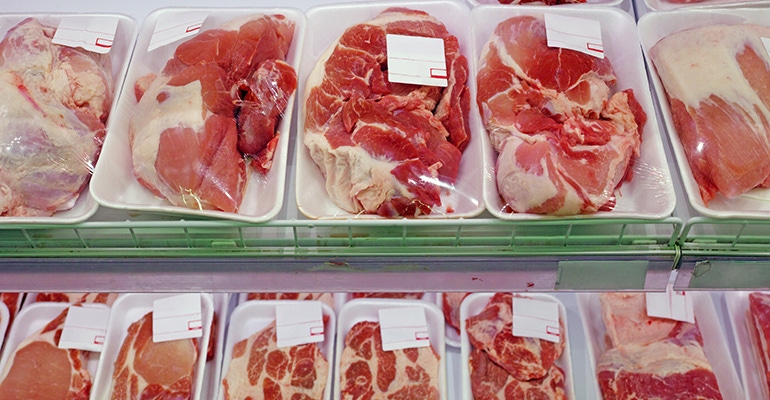5@5: Meat plants are reopening | Amazon vice president quits after company fires protesters
Each day at 5 p.m. we collect the five top food and supplement headlines of the day, making it easy for you to catch up on today's most important natural products industry news.
May 5, 2020

Meat processing plants are reopening. Is it safe for workers to return?
This week a pork processing plant in South Dakota partially reopened after shutting down in April following a severe COVID-19 outbreak. It's one of many such operations facing immense pressure from livestock farmers and local and federal officals alike to prematurely reopen. CDC and OSHA have recommended slowing down the processing lines as part of a set of new precautions to prevent more outbreaks, but because this guidance for meatpackers is ultimately optional many employees remain reluctant to return to work. Read more at The Counter…
An Amazon vice president quit over firings of employees who protested
Tim Bray, formerly a vice president of Amazon web services, recently quit his job "in dismay" after the company fired employee whistle-blowers that were allegedly terminated for questioning the safety of working conditions within its warehouses. In a blog post Bray wrote that the move was indicative of “a vein of toxicity running through the company culture.” Read more at The New York Times…
People of Color are at Greater Risk of COVID-19. Systemic Racism in the Food System Plays a Role
African Americans make up 33% of novel coronavirus hospitalizations, which experts attribute to this demographic's high rate of chronic health conditions. But these health conditions stem from a host of socioeconomic factors, including the fact that many communities of color are food insecure. Black and Latinx people are additionally more likely to have jobs where close person-to-person interaction is either likely or necessary. Read more at Civil Eats…
Fake meat companies rake in cash amid coronavirus food worries
It's a fruitful moment for plant-based protein companies: in mid-April, sales of meat substitutes were double that of the same period in 2019. And shoppers may have no choice but to try out the alternative meat on shelf due to emerging meat purchasing restrictions. Experts predict faux meat to make the biggest splash in China, where food security and supply was already shaken leading up to the pandemic. Read more at Bloomberg…
Food insecurity risks greater for women in COVID-19 crisis
Women worldwide are going to be affected differently by the current pandemic than men are. Research developed by Gallup and the World Food Programme reveals that women are less likely than men to have financial freedom; this coupled with several other factors make food insecurity more probable for women in the coming months. Read more at Gallup…
You May Also Like


